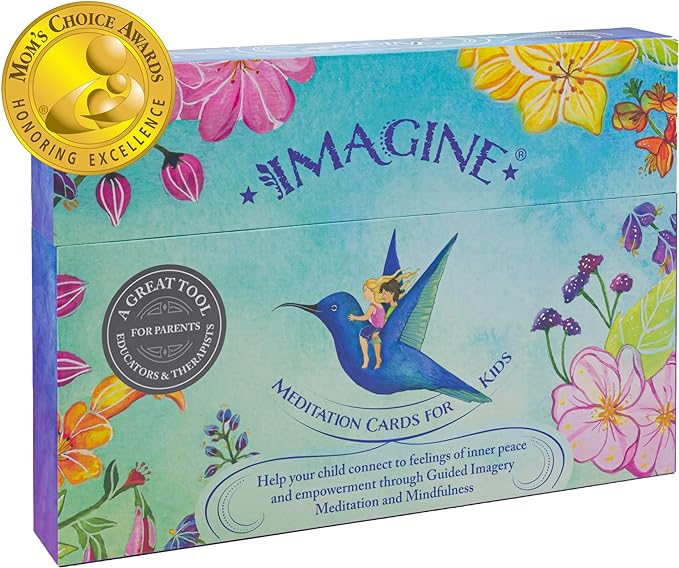Journal Prompts for Kids: Enhancing Mindfulness Through Reflection
As a parent or caregiver, you may be looking for ways to support your child’s emotional well-being and foster their mindfulness. Journaling is an excellent tool that can promote self-reflection, gratitude, empathy, and overall mindfulness in children. In this article, I will share a variety of journal prompts specifically designed for kids, helping them explore their thoughts and feelings while developing important life skills. So, grab a journal and let’s dive into the world of journal prompts for kids!
In today’s fast-paced world, where distractions abound, it is crucial to nurture mindfulness in children. Mindfulness allows kids to be present, aware of their thoughts and feelings, and better equipped to navigate challenges. Journaling, coupled with thoughtful prompts, provides a safe and creative outlet for children to express themselves, reflect on their experiences, and develop a deeper understanding of their emotions.
What are Journal Prompts?
Journal prompts are thought-provoking questions or statements designed to inspire writing and self-reflection. These prompts serve as starting points to guide children’s journal entries, encouraging them to explore their inner world and share their thoughts, experiences, and feelings on paper.
Benefits of Journaling for Kids
Journaling offers numerous benefits for children, both cognitively and emotionally. It helps improve their writing skills, enhances self-expression, and nurtures creativity.
Additionally, journaling provides a private space for children to process their thoughts and emotions, contributing to better emotional regulation and self-awareness.
We have found The Big Life Journal to be one of the best.
Importance of Mindfulness for Children
Mindfulness is an essential skill for children to develop, as it supports their overall well-being and emotional intelligence. By practicing mindfulness, kids can learn to manage stress, cultivate empathy, improve focus, and make better decisions.
Journaling with prompts acts as a gateway to mindfulness, as it encourages children to slow down, reflect, and connect with their inner selves.
How These Journal Prompts For Kids Can Help Foster Mindfulness
Start Simple
Begin with straightforward prompts that are easy for children to answer. They can revolve around daily experiences, positive moments, or observations in their surroundings. For instance:
1. What made you happy today?
Encourage your child to reflect on a moment that brought them joy. It could be playing with a friend, receiving a compliment, or achieving a personal milestone. By focusing on positive experiences, children learn to appreciate the little things that bring them happiness.
2. Describe a nature scene that brings you peace
Connect your child with nature by encouraging them to visualize and describe a calming natural environment. It could be a serene beach, a lush forest, or a blooming garden. This prompt helps children develop a sense of tranquility and connect with the outsdide world.
3. Write about a random act of kindness you witnessed
Prompt your child to recall an act of kindness they observed, whether at home, school, or in their community. Ask them to describe the situation and how it made them feel. This exercise cultivates empathy and teaches children the value of compassion.
Encourage Self-Reflection
Prompts that encourage self-reflection help children develop a deeper understanding of their emotions, actions, and personal growth. These prompts can focus on challenges, lessons learned, or personal goals. Consider using prompts like:
1. What challenges did you face today and how did you overcome them?
Invite your child to reflect on any obstacles they encountered during the day. Encourage them to describe the challenges and brainstorm possible solutions. This prompt helps develop problem-solving skills and resilience in children.
2. Write about something you learned today and why it’s important to you
Urge your child to think about a new piece of knowledge they acquired and explain why it holds significance. This prompt fosters a love for learning and helps children recognize the value of continuous growth and education.
3. Reflect on a mistake you made and what you can learn from it
Mistakes offer valuable learning opportunities. Encourage your child to write about a mistake they made and reflect on the lesson learned from it. Emphasize that mistakes are a natural part of growth and that learning from them is what matters most.
Promote Gratitude and Positive Thinking

Using a Journal is a great way of Practicing gratitude and cultivating a positive mindset.
These journal prompts for kids help children focus on the good in their lives and appreciate what they have.
Some gratitude-related prompts include:
1. List three things you are grateful for today
Ask your child to identify and write down three things they feel grateful for. It can be simple things like a loving family, a favorite toy, or a sunny day. This prompt encourages children to recognize the positive aspects of their lives.
2. Write about a person who inspires you and why
Encourage your child to choose someone who inspires them, such as a family member, friend, or historical figure. Ask them to describe the qualities or actions that make that person inspirational. This prompt cultivates admiration and gratitude towards role models.
3. Describe a situation where you felt proud of yourself
Invite your child to recall a moment when they experienced a sense of accomplishment or pride. Encourage them to write about that specific situation and the emotions associated with it. This prompt promotes self-confidence and self-appreciation.
Explore Emotions and Empathy
Prompts that delve into emotions and empathy allow children to develop emotional intelligence and perspective-taking skills. These prompts encourage children to reflect on their feelings and understand the emotions of others. Consider using prompts such as:
1. Write about a time when you felt excited or scared
Prompt your child to recall a situation that evoked strong emotions, whether excitement or fear. Encourage them to describe the event, the emotions they experienced, and how they handled those feelings. This prompt helps children identify and understand their emotional responses.
2. Imagine being in someone else’s shoes and describe how they might feel
Encourage empathy by asking your child to imagine themselves in someone else’s situation. Prompt them to describe the emotions that person might be experiencing and encourage them to consider how they would support and understand that person. This exercise fosters empathy and perspective-taking.
3. Reflect on a time when you helped someone and how it made you feel
Invite your child to think about a time they provided assistance or support to someone else. Ask them to write about the situation, the actions they took, and the emotions they experienced as a result. This prompt emphasizes the positive impact of helping others and encourages kindness.
Final Words From Me
Journaling with thoughtful prompts is an effective way to enhance mindfulness in children. By incorporating journaling into their daily routine, you provide them with a valuable tool for self-expression, self-reflection, gratitude, and empathy. Through these journal prompts for kids, children can develop important life skills and cultivate a mindful approach to their thoughts and emotions.
Remember, journaling should be a personal and non-judgmental experience for children. Encourage them to write freely, without worrying about grammar or spelling. Let their thoughts flow onto the paper, allowing them to explore their inner selves and embrace mindfulness in their lives.
Frequently Asked Questions
Can younger children engage in journaling with prompts?
Absolutely! Journaling with prompts can be adapted for younger children by simplifying the language and providing visual cues, such as drawings or stickers, to inspire their responses.
How often should children journal?
The frequency of journaling depends on the child’s interest and schedule. Encourage them to journal at least a few times a week to maintain consistency and make it a habit.
Should parents read their child’s journal entries?
Respecting privacy is important. Unless a child willingly shares their entries, it’s best to allow them to have their personal space for self-expression.
Can journaling help with emotional regulation?
Yes, journaling can support emotional regulation by providing an outlet for children to express and process their emotions. It allows them to identify triggers, explore their feelings, and develop healthy coping mechanisms.
Can these journal prompts for kids be used in a classroom setting?
Absolutely! Journal prompts can be incorporated into classroom activities to foster reflection, creativity, and empathy among students. Teachers can adapt prompts to suit different age groups and subjects.






